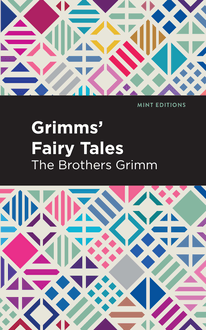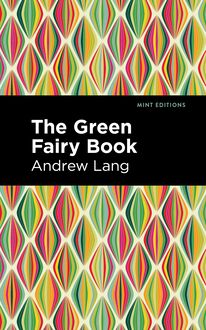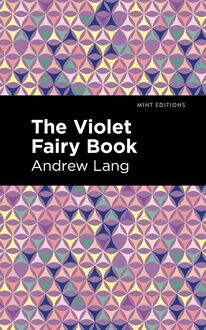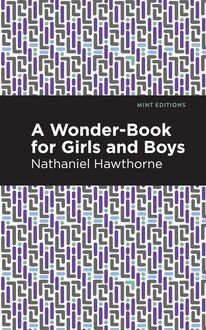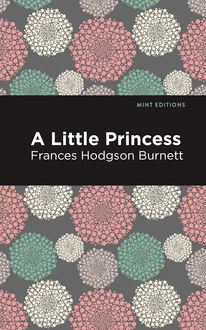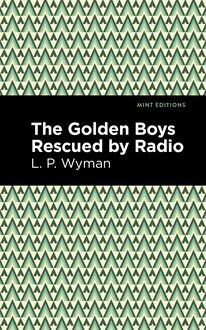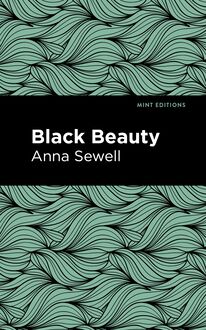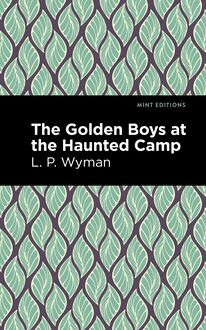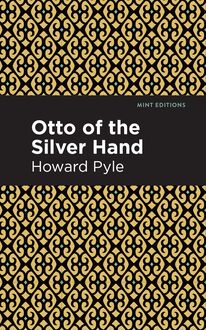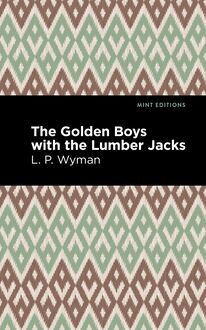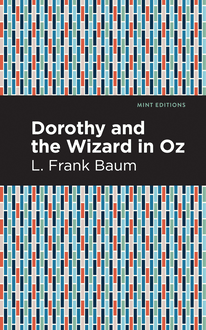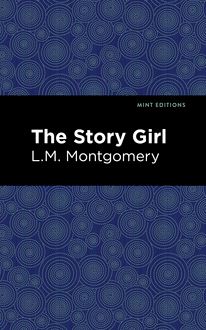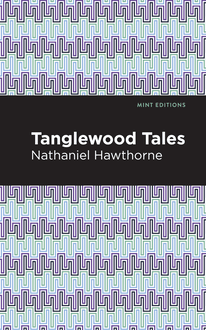-
 Univers
Univers
-
 Ebooks
Ebooks
-
 Livres audio
Livres audio
-
 Presse
Presse
-
 Podcasts
Podcasts
-
 BD
BD
-
 Documents
Documents
-
- Cours
- Révisions
- Ressources pédagogiques
- Sciences de l’éducation
- Manuels scolaires
- Langues
- Travaux de classe
- Annales de BEP
- Etudes supérieures
- Maternelle et primaire
- Fiches de lecture
- Orientation scolaire
- Méthodologie
- Corrigés de devoir
- Annales d’examens et concours
- Annales du bac
- Annales du brevet
- Rapports de stage
La lecture à portée de main
Vous pourrez modifier la taille du texte de cet ouvrage
Découvre YouScribe en t'inscrivant gratuitement
Je m'inscrisDécouvre YouScribe en t'inscrivant gratuitement
Je m'inscrisEn savoir plus
Vous pourrez modifier la taille du texte de cet ouvrage
En savoir plus

Description
Originally published in 1853, author Nathaniel Hawthorne delivers a vibrant selection of mythological tales inspired by some of the most popular figures in Greek lore. Tanglewood Tales is filled with whimsical characters and their fantastical stories.
Nathaniel Hawthorne brings Ancient Greek mythology to life in this collection of Tanglewood Tales. The author reinterprets the stories for a younger audience with a broad appeal. The book contains heroes and heroines, as well as magicians and kings. Some of the most notable myths include “The Golden Fleece,” which centers Jason and the Argonauts. And “Circe's Palace," which follows a battle of wits between the enchantress and a formidable foe.
Tanglewood Tales is a companion to Hawthorne’s previous work, A Wonder-Book for Girls and Boys. It expands his collection of children’s stories with more enduring tales from Greek mythology. These are timeless classics that have captivated readers for multiple generations.
With an eye-catching new cover, and professionally typeset manuscript, this edition of Tanglewood Tales is both modern and readable.
Sujets
Informations
| Publié par | Mint Editions |
| Date de parution | 16 février 2021 |
| Nombre de lectures | 0 |
| EAN13 | 9781513273624 |
| Langue | English |
| Poids de l'ouvrage | 1 Mo |
Informations légales : prix de location à la page 0,0450€. Cette information est donnée uniquement à titre indicatif conformément à la législation en vigueur.
Extrait
Tanglewood Tales
Nathaniel Hawthorne
Tanglewood Tales was first published in 1853.
This edition published by Mint Editions 2021.
ISBN 9781513268620 | E-ISBN 9781513273624
Published by Mint Editions®
minteditionbooks.com
Publishing Director: Jennifer Newens
Design & Production: Rachel Lopez Metzger
Project Manager: Micaela Clark
Typesetting: Westchester Publishing Services
C ONTENTS T HE W AYSIDE. I NTRODUCTORY T HE M INOTAUR T HE P YGMIES T HE D RAGON’S T EETH C IRCE’S P ALACE T HE P OMEGRANATE S EEDS T HE G OLDEN F LEECE
T HE W AYSIDE. I NTRODUCTORY
A short time ago, I was favored with a flying visit from my young friend Eustace Bright, whom I had not before met with since quitting the breezy mountains of Berkshire. It being the winter vacation at his college, Eustace was allowing himself a little relaxation, in the hope, he told me, of repairing the inroads which severe application to study had made upon his health; and I was happy to conclude, from the excellent physical condition in which I saw him, that the remedy had already been attended with very desirable success. He had now run up from Boston by the noon train, partly impelled by the friendly regard with which he is pleased to honor me, and partly, as I soon found, on a matter of literary business.
It delighted me to receive Mr. Bright, for the first time, under a roof, though a very humble one, which I could really call my own. Nor did I fail (as is the custom of landed proprietors all about the world) to parade the poor fellow up and down over my half a dozen acres; secretly rejoicing, nevertheless, that the disarray of the inclement season, and particularly the six inches of snow then upon the ground, prevented him from observing the ragged neglect of soil and shrubbery into which the place had lapsed. It was idle, however, to imagine that an airy guest from Monument Mountain, Bald Summit, and old Graylock, shaggy with primeval forests, could see anything to admire in my poor little hillside, with its growth of frail and insect-eaten locust trees. Eustace very frankly called the view from my hill top tame; and so, no doubt, it was, after rough, broken, rugged, headlong Berkshire, and especially the northern parts of the county, with which his college residence had made him familiar. But to me there is a peculiar, quiet charm in these broad meadows and gentle eminences. They are better than mountains, because they do not stamp and stereotype themselves into the brain, and thus grow wearisome with the same strong impression, repeated day after day. A few summer weeks among mountains, a lifetime among green meadows and placid slopes, with outlines forever new, because continually fading out of the memory—such would be my sober choice.
I doubt whether Eustace did not internally pronounce the whole thing a bore, until I led him to my predecessor’s little ruined, rustic summer house, midway on the hillside. It is a mere skeleton of slender, decaying tree trunks, with neither walls nor a roof; nothing but a tracery of branches and twigs, which the next wintry blast will be very likely to scatter in fragments along the terrace. It looks, and is, as evanescent as a dream; and yet, in its rustic network of boughs, it has somehow enclosed a hint of spiritual beauty, and has become a true emblem of the subtile and ethereal mind that planned it. I made Eustace Bright sit down on a snow bank, which had heaped itself over the mossy seat, and gazing through the arched windows opposite, he acknowledged that the scene at once grew picturesque.
“Simple as it looks,” said he, “this little edifice seems to be the work of magic. It is full of suggestiveness, and, in its way, is as good as a cathedral. Ah, it would be just the spot for one to sit in, of a summer afternoon, and tell the children some more of those wild stories from the classic myths!”
“It would, indeed,” answered I. “The summer house itself, so airy and so broken, is like one of those old tales, imperfectly remembered; and these living branches of the Baldwin apple tree, thrusting so rudely in, are like your unwarrantable interpolations. But, by the by, have you added any more legends to the series, since the publication of the ‘Wonder-Book’?”
“Many more,” said Eustace; “Primrose, Periwinkle, and the rest of them, allow me no comfort of my life unless I tell them a story every day or two. I have run away from home partly to escape the importunity of these little wretches! But I have written out six of the new stories, and have brought them for you to look over.”
“Are they as good as the first?” I inquired.
“Better chosen, and better handled,” replied Eustace Bright. “You will say so when you read them.”
“Possibly not,” I remarked. “I know from my own experience, that an author’s last work is always his best one, in his own estimate, until it quite loses the red heat of composition. After that, it falls into its true place, quietly enough. But let us adjourn to my study, and examine these new stories. It would hardly be doing yourself justice, were you to bring me acquainted with them, sitting here on this snow bank!”
So we descended the hill to my small, old cottage, and shut ourselves up in the south-eastern room, where the sunshine comes in, warmly and brightly, through the better half of a winter’s day. Eustace put his bundle of manuscript into my hands; and I skimmed through it pretty rapidly, trying to find out its merits and demerits by the touch of my fingers, as a veteran story-teller ought to know how to do.
It will be remembered that Mr. Bright condescended to avail himself of my literary experience by constituting me editor of the “Wonder-Book.” As he had no reason to complain of the reception of that erudite work by the public, he was now disposed to retain me in a similar position with respect to the present volume, which he entitled T ANGLEWOOD T ALES . Not, as Eustace hinted, that there was any real necessity for my services as introducer, inasmuch as his own name had become established in some good degree of favor with the literary world. But the connection with myself, he was kind enough to say, had been highly agreeable; nor was he by any means desirous, as most people are, of kicking away the ladder that had perhaps helped him to reach his present elevation. My young friend was willing, in short, that the fresh verdure of his growing reputation should spread over my straggling and half-naked boughs; even as I have sometimes thought of training a vine, with its broad leafiness, and purple fruitage, over the worm-eaten posts and rafters of the rustic summer house. I was not insensible to the advantages of his proposal, and gladly assured him of my acceptance.
Merely from the title of the stories I saw at once that the subjects were not less rich than those of the former volume; nor did I at all doubt that Mr. Bright’s audacity (so far as that endowment might avail) had enabled him to take full advantage of whatever capabilities they offered. Yet, in spite of my experience of his free way of handling them, I did not quite see, I confess, how he could have obviated all the difficulties in the way of rendering them presentable to children. These old legends, so brimming over with everything that is most abhorrent to our Christianized moral sense some of them so hideous, others so melancholy and miserable, amid which the Greek tragedians sought their themes, and moulded them into the sternest forms of grief that ever the world saw; was such material the stuff that children’s playthings should be made of! How were they to be purified? How was the blessed sunshine to be thrown into them?
But Eustace told me that these myths were the most singular things in the world, and that he was invariably astonished, whenever he began to relate one, by the readiness with which it adapted itself to the childish purity of his auditors. The objectionable characteristics seem to be a parasitical growth, having no essential connection with the original fable. They fall away, and are thought of no more, the instant he puts his imagination in sympathy with the innocent little circle, whose wide-open eyes are fixed so eagerly upon him. Thus the stories (not by any strained effort of the narrator’s, but in harmony with their inherent germ) transform themselves, and re-assume the shapes which they might be supposed to possess in the pure childhood of the world. When the first poet or romancer told these marvellous legends (such is Eustace Bright’s opinion), it was still the Golden Age. Evil had never yet existed; and sorrow, misfortune, crime, were mere shadows which the mind fancifully created for itself, as a shelter against too sunny realities; or, at most, but prophetic dreams to which the dreamer himself did not yield a waking credence. Children are now the only representatives of the men and women of that happy era; and therefore it is that we must raise the intellect and fancy to the level of childhood, in order to re-create the original myths.
I let the youthful author talk as much and as extravagantly as he pleased, and was glad to see him commencing life with such confidence in himself and his performances. A few years will do all that is necessary towards showing him the truth in both respects. Meanwhile, it is but right to say, he does really appear to have overcome the moral objections against these fables, although at the expense of such liberties with their structure as must be left to plead their own excuse, without any help from me. Indeed, except that there was a necessity for it—and that the inner life of the legends cannot be come at save by making them entirely one’s own property—there is no defense to be made.
Eustace informed me that he had told his stories to the children in various situations—in the woods, on the shore of the lake, in the dell of Shadow Brook, in the playroom, at Tanglewood fireside, and in a magnificent palace of snow, wit
-
 Univers
Univers
-
 Ebooks
Ebooks
-
 Livres audio
Livres audio
-
 Presse
Presse
-
 Podcasts
Podcasts
-
 BD
BD
-
 Documents
Documents
-
Jeunesse
-
Littérature
-
Ressources professionnelles
-
Santé et bien-être
-
Savoirs
-
Education
-
Loisirs et hobbies
-
Art, musique et cinéma
-
Actualité et débat de société
-
Jeunesse
-
Littérature
-
Ressources professionnelles
-
Santé et bien-être
-
Savoirs
-
Education
-
Loisirs et hobbies
-
Art, musique et cinéma
-
Actualité et débat de société
-
Actualités
-
Lifestyle
-
Presse jeunesse
-
Presse professionnelle
-
Pratique
-
Presse sportive
-
Presse internationale
-
Culture & Médias
-
Action et Aventures
-
Science-fiction et Fantasy
-
Société
-
Jeunesse
-
Littérature
-
Ressources professionnelles
-
Santé et bien-être
-
Savoirs
-
Education
-
Loisirs et hobbies
-
Art, musique et cinéma
-
Actualité et débat de société
- Cours
- Révisions
- Ressources pédagogiques
- Sciences de l’éducation
- Manuels scolaires
- Langues
- Travaux de classe
- Annales de BEP
- Etudes supérieures
- Maternelle et primaire
- Fiches de lecture
- Orientation scolaire
- Méthodologie
- Corrigés de devoir
- Annales d’examens et concours
- Annales du bac
- Annales du brevet
- Rapports de stage
